2020 was not so much a year that changed cinema, but the way we experience it––at least in the United States. The countries that contained COVID have largely reopened to box office success. The proof is in the numbers as the global box office champion of the year was the Chinese war epic The Eight Hundred, not a film from a major US-based studio. Instead, high-profile event films like a new Pixar animation or a major superhero movie became “must-stream TV,” leaving theatrical exhibitors largely high and dry. For cinephiles, most of us enjoyed Steve McQueen’s masterful Small Axe anthology at home on Amazon Prime or the BBC, further blurring the line between prestige television and prestige cinema.
2021 will continue to be a year of experimentation until the theatrical business finds its footing again. While the latter half of the year may include delayed blockbusters, one has to fear for the smaller independent productions impacted by the expense of COVID. This may, in fact, be another reason film festivals may have to continue to offer a slimmed-down edition in the coming year or two.
On the studio side, producer Jason Blum, speaking to KCRW’s The Business podcast, speculates in the short term there may be a theatrical renaissance for the kinds of genres that have gravitated more towards streaming over the past few years, allowing more films to enjoy a nationwide theatrical release by lowering the risk for studios. His home studio Universal was the only one to constantly keep theaters fed with new product, thanks to a deal with large exhibitors AMC, Cinemark, and Cineplex which allows certain films to go to Premium Video on Demand after 17 days unless they prove to be a hit.
It’s not known what exactly this will mean for exhibitors, but ideally the more times you entice one to use their AMC A-List or Regal Unlimited card, the more popcorn they hopefully will buy. Theaters, especially the beleaguered AMC, are teetering on the edge of bankruptcy. The larger exhibitors like Cineworld (Regal) and Cinepolis spent the last few years achieving a global scale that proved to be problematic in a global pandemic when governments rightfully have mandated closures to protect the public.
So what will 2021 bring? Hopefully a gradual and safe return to the movies and film festivals in person later in the year. The experience of going to the movies and surrendering the screen can’t be replicated at home. 2020 will also go down as the year of the drive-in as both “hard top” exhibitors and film festivals adapted by running drive-ins. Indie distributors like IFC Films provided some of the summer’s “box office” hits, allowing releases like Dave Franco’s The Rental to find a bigger audience. Nomadland, a film about mobility, fittingly seemed to play as a centerpiece of many fall film festivals’ drive-in program.
Honorable Mentions: Lovers Rock, Bacurau, Collective, To The Ends of the Earth, Ma Rainey’s Black Bottom
10. Red, White and Blue (Steve McQueen)
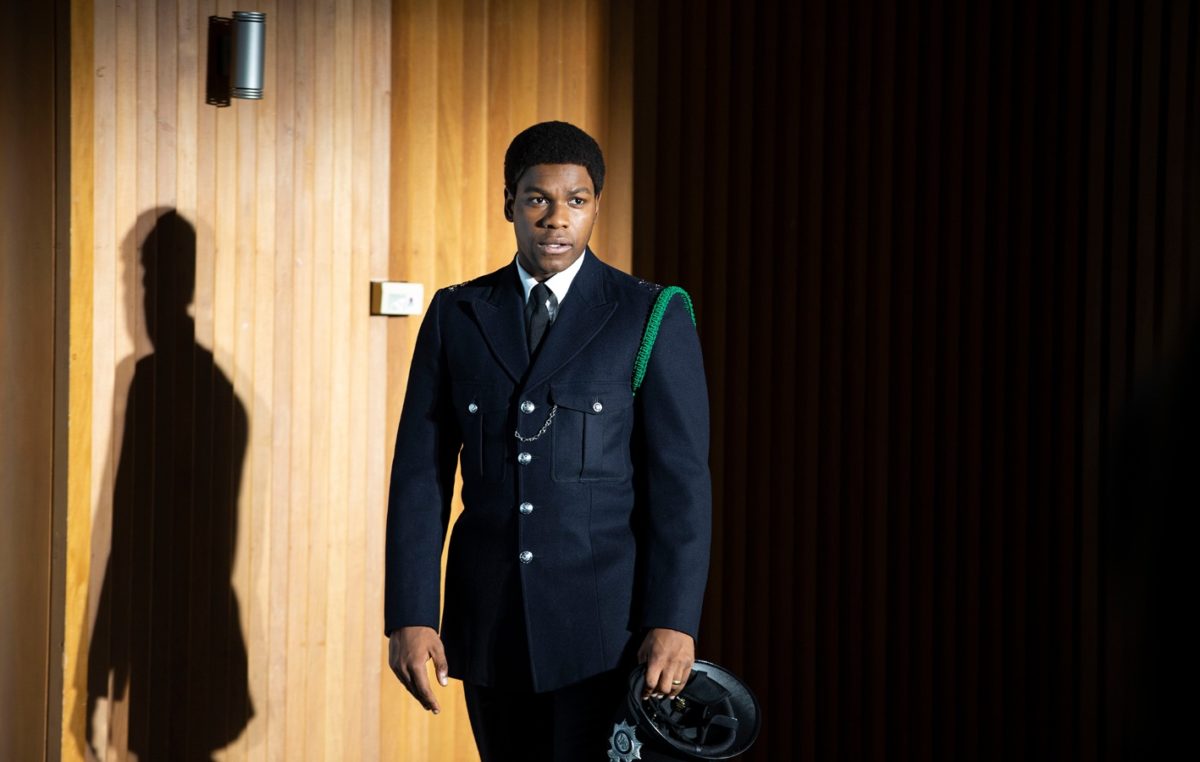
Representing a diversity of experiences, the Small Axe entry Red, White and Blue is a fascinating look at an early attempt in community policing as Leroy Logan (John Boyega) quits his job working in a laboratory to become a rookie cop on London’s Metropolitan Police Department. He believes he can be an essential bridge between the diverse community and mostly white police force, finding the road is a lot bumper than it might appear for a young idealist. Instead of gaining respect, he’s used a token “poster boy” for a PR campaign while alienating his own father who has been the victim of racist police tactics. Red, White and Blue, although set in the late 1970s, provides a vital voice to a conversation that we are still having today in many diverse cities.
9. Minari (Lee Isaac Chung)
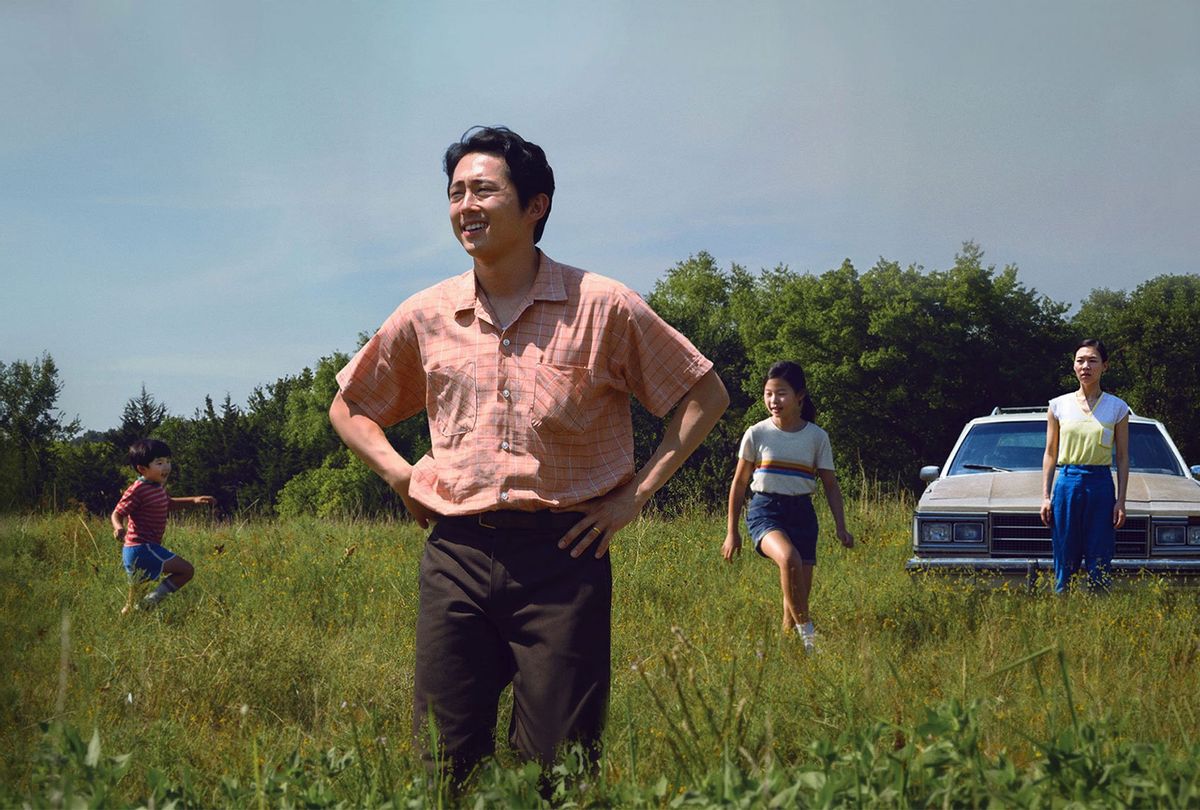
An emotionally rich family drama, Minari is a beautifully directed, semi-autobiographical drama inspired by writer-director Lee Isaac Chung’s upbringing as a family chases the American dream by living and working on the land in a small Arkansas town. As first-generation Korean immigrants, they find a sense of community and also challenges between their day jobs (working on an industrial chicken farm) and caring for both their children and their grandmother. Minari is a profound and moving picture that is as Korean as it is American in its themes.
8. A Sun (Chung Moog-hong)
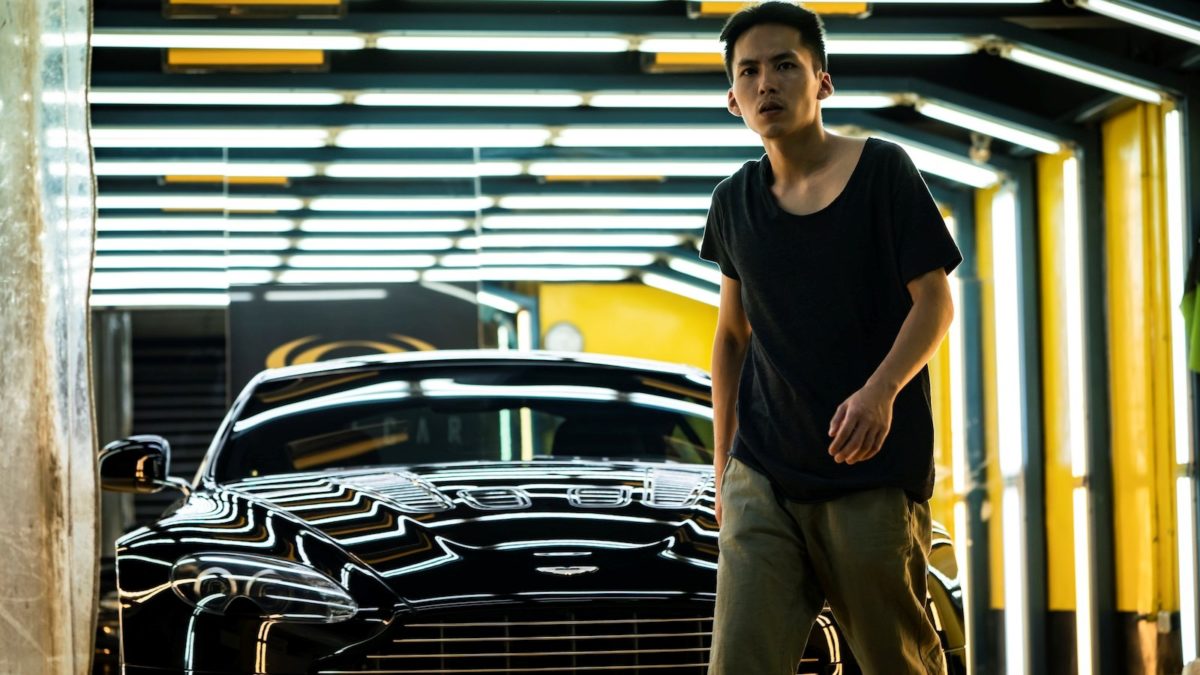
Chung Moog-hong’s A Sun––a rich Taiwanese drama with the texture of a novel––was unceremoniously released on Netflix in the middle of the Sundance Film Festival, and one of the year’s best pictures might have been overlooked if not for a few critics that praised it during its run at TIFF. The film follows a family of four rocked by their young son A-Ho’s (Greg Hsu) crime and their oldest son A-he’s (Wu Chien-ho) suicide. Examining the grieving process of parents Qin (Samantha Ko) and A-wen (Chen Yi-wen) as they let one on the wrong path go, only to mourn another, A Sun is a stylishly directed family crime drama that unfolds in surprising and profound ways. As each member tries to make amends with each other, we witness a seedy criminal underworld that exists beyond the glimmer of luxury.
7. First Cow (Kelly Reichardt)

Kelly Reichardt’s period drama is as moving and rich as the best of her previous works, following the adventures of Otis (John Magaro) and King-Lu (Orion Lee) as two pioneers selling sweet biscuits in Oregon country. They manifest their own destiny after the arrival of the territory’s first cow in a revisionist western that is mostly about friendship.
6. Welcome to Chechnya (David France)
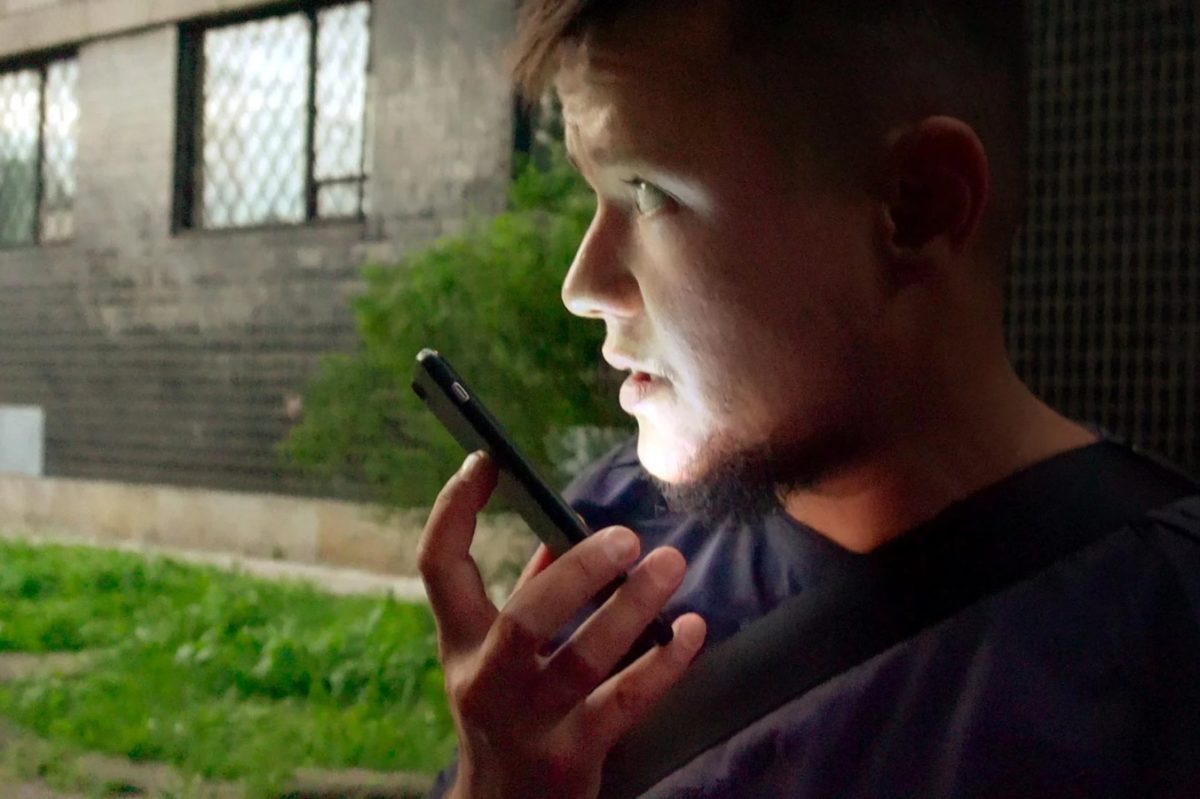
One of the bravest films of the year, David France travels to the Chechnya region of Russia to document the horrific treatment of homosexuals (subject to state-encouraged acts of detainment, torture, rape, and execution) and the brave work of activists who help those escape and seek asylum elsewhere. France employs an interesting technique to protect their identity while preserving the emotional impact of his on-the-ground reporting, using CGI to give his subjects a new (yet real-looking) face.
5. Never Rarely Sometimes Always Never (Eliza Hittman)
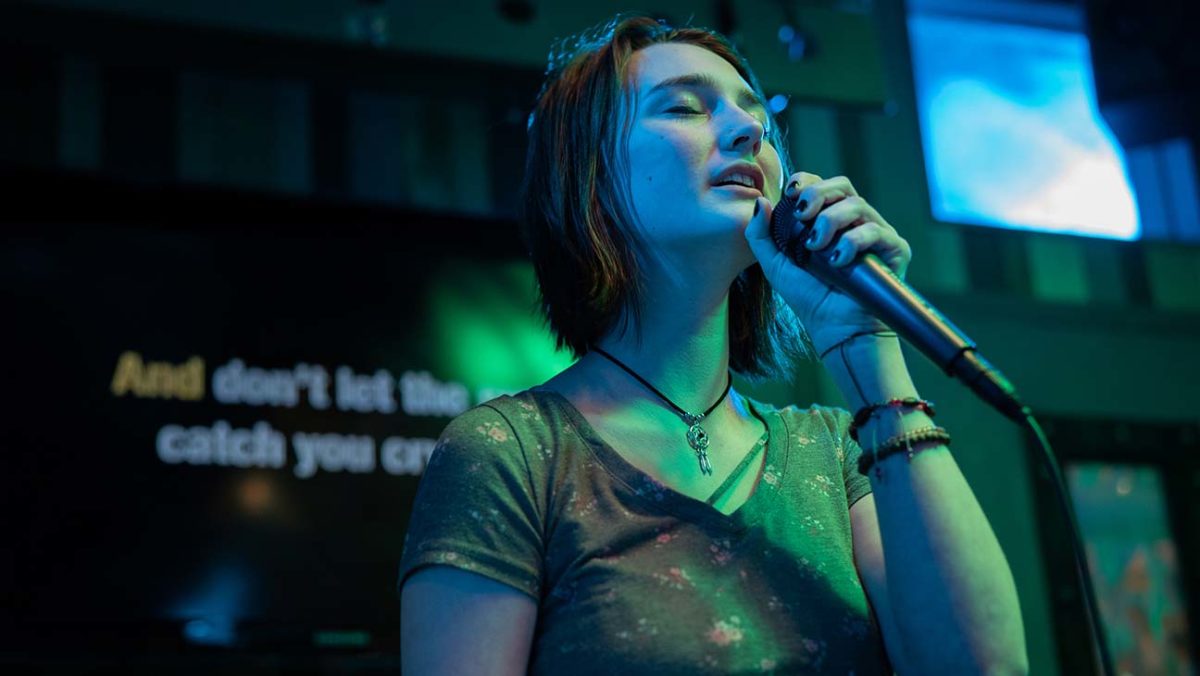
Starring musician Sidney Flanigan in a powerful film debut as Autumn, a pregnant teen from a PA-backwater, Never Rarely Sometimes Always is a stunning work of social realism. Boxed in to a corner in PA by a “birthright” center in town, Autumn takes off with friend Skylar (Talia Ryder) to New York City only to find additional challenges. The film is masterfully written and directed without a false note as it demystifies a subject too often handled without the sensitively and weight it’s given here.
4. Time (Garrett Bradley)
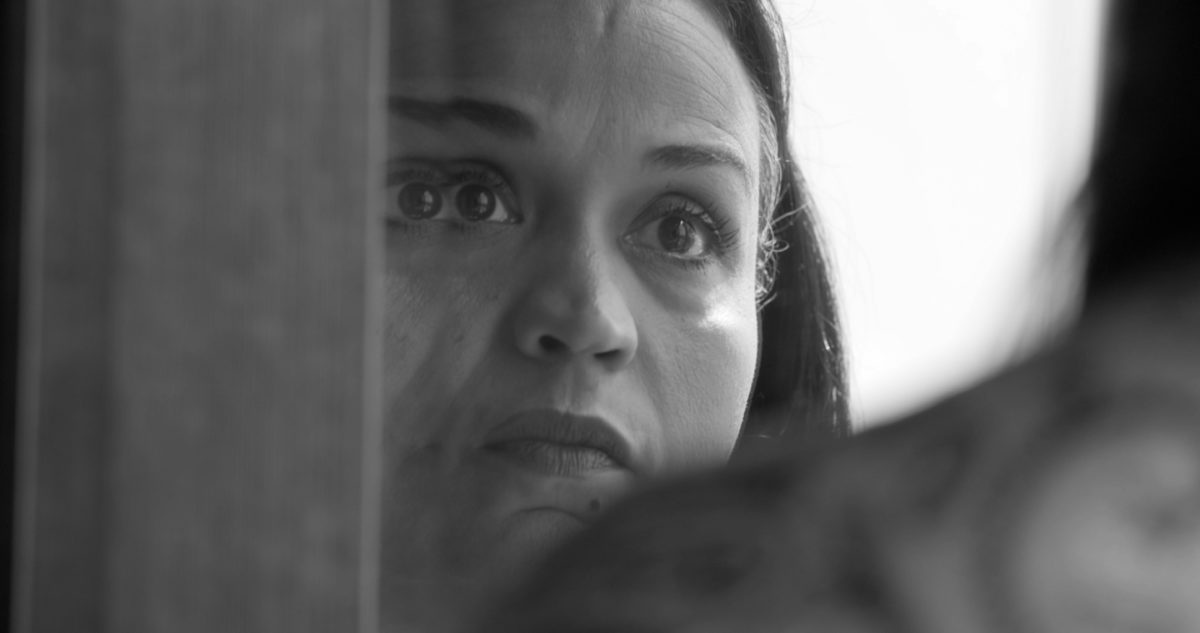
Like Rudy Valdez’s The Sentence from 2018, Garrett Bradley’s Time explores the effect of incarceration on one’s family as Fox Richardson awaits the release of her husband Rob from the Louisiana State Penitentiary for a bank robbery. Bradley’s picture, expanded from a New York Times Op-Doc, beautifully documents the process of waiting as she documents raising her children over the course of 18 years. Although there is no doubt Rob was guilty, the film is a vivid portrait of a life not lived as the family grows fearful after some promise that Rob may have to serve all 60 years of his sentence––in essence, a life sentence for the family.
3. Nomadland (Chloé Zhao)
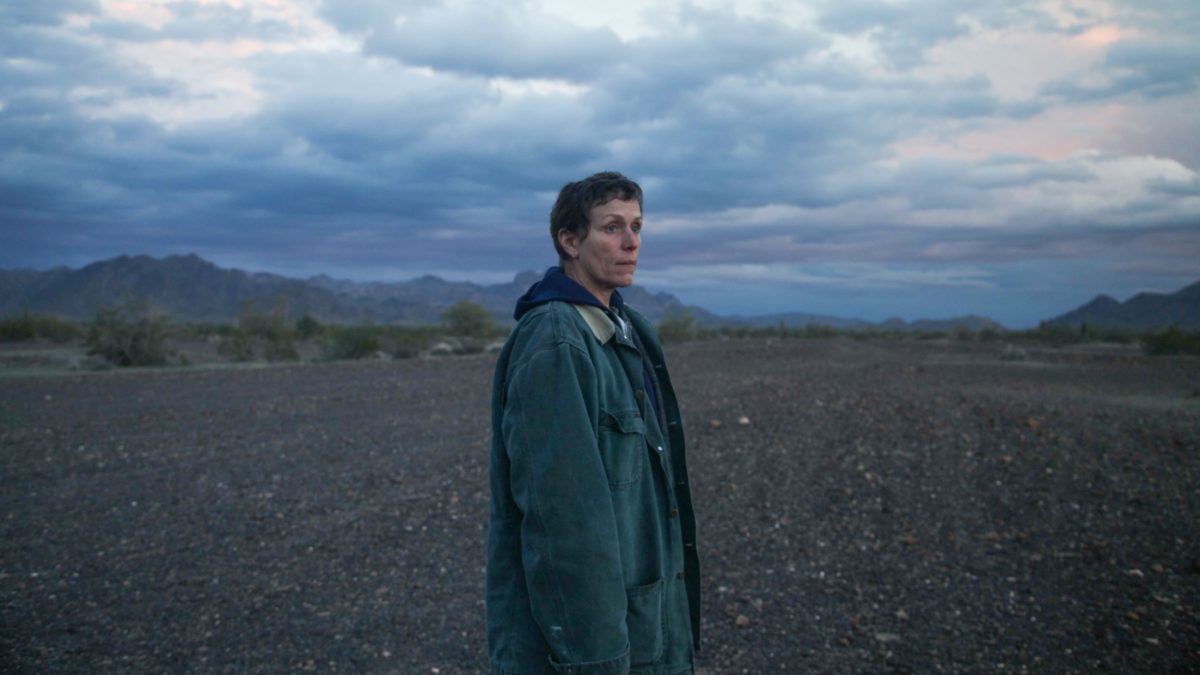
A quiet and impactful drama, Chloé Zhao’s Nomadland features all the hallmarks of the classic Western (self-determinism, travel, manifest destiny) while providing a biting commentary on labor, the gig economy, and the great recession where folks like Fern (Francis McDormand) and her late husband’s jobs were made obsolete. Taking the road after her town’s population contracted so rapidly its zip code was canceled, Fern gets by taking gigs where she can get them and living in her RV. Beautifully directed by Zhao, the film, as in her previous work, includes a cast of non-traditional performers along with top-notch turns by McDormand and David Strathairn.
2. Mangrove (Steve McQueen)
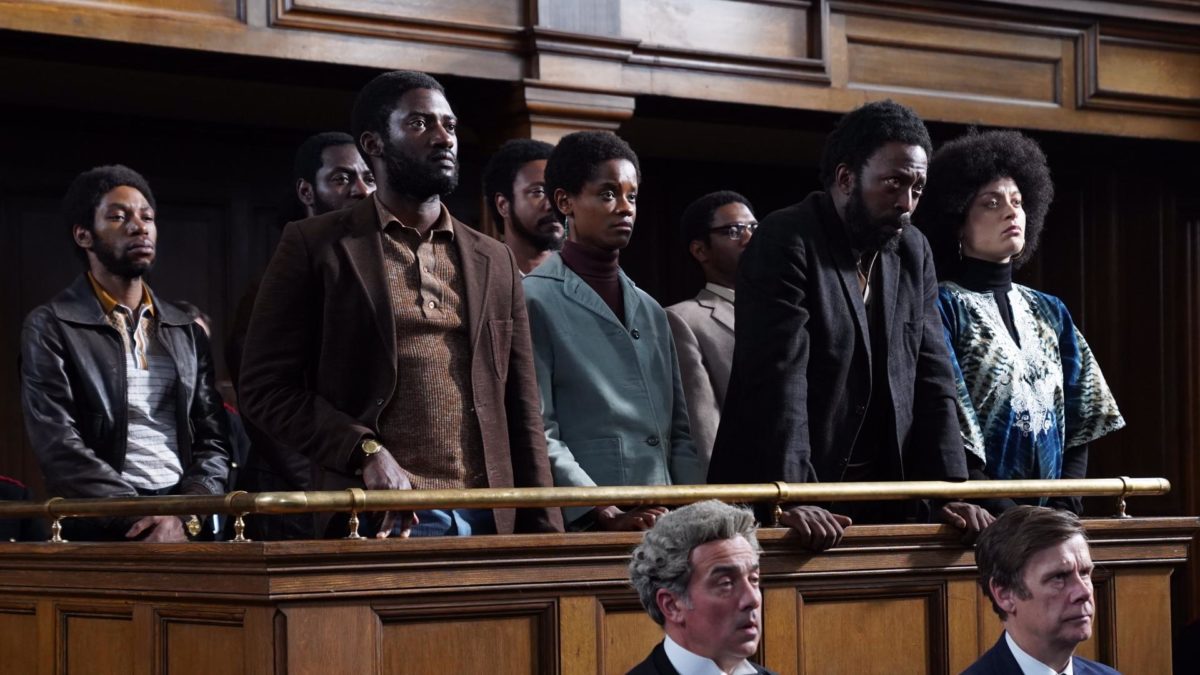
The first film to drop as part of Steve McQueen’s Small Axe series exploring the lives of West Indian immigrants and their first-generation families in London in the 1960s and 1970s, Mangrove is a rousing courtroom drama inspired by the trial of activists that hung out at a Notting Hill Caribbean restaurant. Documenting a vital moment in British Black history when a community stands up and defends itself against police racism and brutality and wins (in court, at least), it is led by fierce performances from Letitia Wright and Shaun Parkes. Mangrove is a reassuring reminder that, eventually, those on the right side of history will win.
1. City Hall (Frederick Wiseman)

In a year when it’s easy to feel failed by government at all levels, Frederick Wiseman’s essential four-hour and thirty-two-minute documentary City Hall examines local sausage-making in Boston City Hall. Here, Wiseman (once called the “Poet Laureate of the Staff Meeting”) documents memorable moments of the every day, pulling back the curtain on departments like city planning, sanitation, buildings and inspections, parking enforcement, police, and the executive wing under mayor Marty Walsh. As usual, Wiseman finds fascinating characters in daily interactions from fighting a parking ticket to community engagement as Walsh talks personally about his own demons with his constituents. It’s easy to get cynical and critical of institutions, and here Wiseman demystifies bureaucracy in a sprawling, yet bingable epic.
